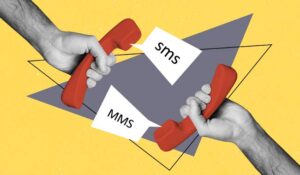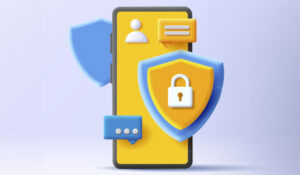Technology Applications: Using text messaging (SMS) to confirm appointments.
The Problem
It is estimated that the NHS loses around £800 million every year on missed appointments. This is for a variety of reasons, but one common reason is that people forget that they have an appointment or forget to phone up to cancel or re-arrange.
The problem is greatest in the area of ‘high value appointments or specialist referrals’. This is where a GP may have referred a patient to a specialist consultant such as an oncologist or for an MRI scan. Regardless of whether the patient shows up, that specialist’s time has to be paid for by the taxpayer.
DNAs (did not attends) therefore incur a double loss: not only has the government spent valuable NHS funds unnecessarily but expensive medical equipment and resources have not been effectively utilised.
The Solution
An automated text message (SMS) is sent to the patient’s mobile phone three days prior to an appointment.
The hosted patient reminder service currently in development with East Berkshire Primary Care Out of Hours Services (EBPC), using technology from OPEX Hosting is an example of how this works.
How the System Works
Typically a practice needs 48 hours’ notice to be able to re-book appointments, so three days prior to an appointment a text reminder will be sent to the patient.
A pre-configured message is data-merged with the information extracted from the appointment booking system (typically EMIS or Vision).
The appointment reminder is then automatically sent out as a pre-scheduled text message, prompting the patient to respond with a ‘confirm’ or ‘cancel’ message.
An administrator will log in to the application each morning and download the results of the text message campaign. With a single view they can see how many cancellations they have and can begin to re-allocate those appointments.
As Patrick Rogan, CEO of EBPC points out: “Let’s face it, an SMS or phone call is cheaper than the cost of a stamp and it’s real-time communication which is more likely to generate a helpful response. We think this has the potential to make a big difference in our region, and to the NHS as a whole.”
Voice Messaging Services
For those individuals who do not have a mobile phone, plans are underway to develop a voice messaging service. The service will ring the patient’s landline and when they answer an automated voice will prompt them to press ‘1’ to confirm the appointment or press ‘2’ to cancel.
Other Areas SMS Texts Can Be Used
SMS bulk texting can be used in many different ways to improve productivity for an organisation. In restaurants, for example, it can maximise covers and for hair salons it can ensure all staff are fully utilised in a given day.
It can also be deployed internally with an organisation. In the logistics industry, for example, it is invaluable in updating delivery vehicles with details of their next scheduled stop.
Similarly in the breakdown and vehicle recovery industry it can not only be deployed internally but is another customer service tool by which to engage the customer and keep them updated on the estimated time of arrival of roadside assistance.
Data Protection
When implementing these types of solutions the legalities need to be considered. The Privacy and Electronic Communications (EC Directive) Regulations 2003 state that best practice guidelines should be followed when contacting people via text message.
Information about the communications you intend to send should be given and the recipient should consent to receive these messages.
An opt-out should be given to stop texts and the identity of who has sent the text must always be given. If these practices are not met, the Information Commissioners Office (ICO) has the power to take enforcement action against organisations.
The Benefits
Trials of a new automated SMS messaging service have indicated that typical ‘no shows’ could be reduced by at least 30%. If this type of solution was rolled out on a national scale it could save the Department of Health in excess of £240 million a year.
The solution provided to EBPC by OPEX Hosting is an ‘in-network’ solution ensuring that EBPC can offer primary care providers access to the technology at affordable rates and in a way that can be easily deployed.
OPEX Hosting is expected to roll out similar solution suites to other areas within the NHS, ensuring this type of service can be cascaded down to those who need it most.
For more on SMS messaging in the contact centre, read these articles next:
- 20 Best Practices for Messaging Customers
- Get Up To Speed: The Latest on Messaging, Social Media, and Video
- Call Centre Technology Checklist: SMS
Author: Jonty Pearce
Reviewed by: Hannah Swankie
Published On: 20th Mar 2008 - Last modified: 29th Aug 2025
Read more about - Technology, Business Systems





































If our practice was to implement your SMS appointment reminder service, would we need to by an extra license from our clinical suppplier (Vision)? Is this then limited to one workstation?
this is a good move considered that people dont misuse it.